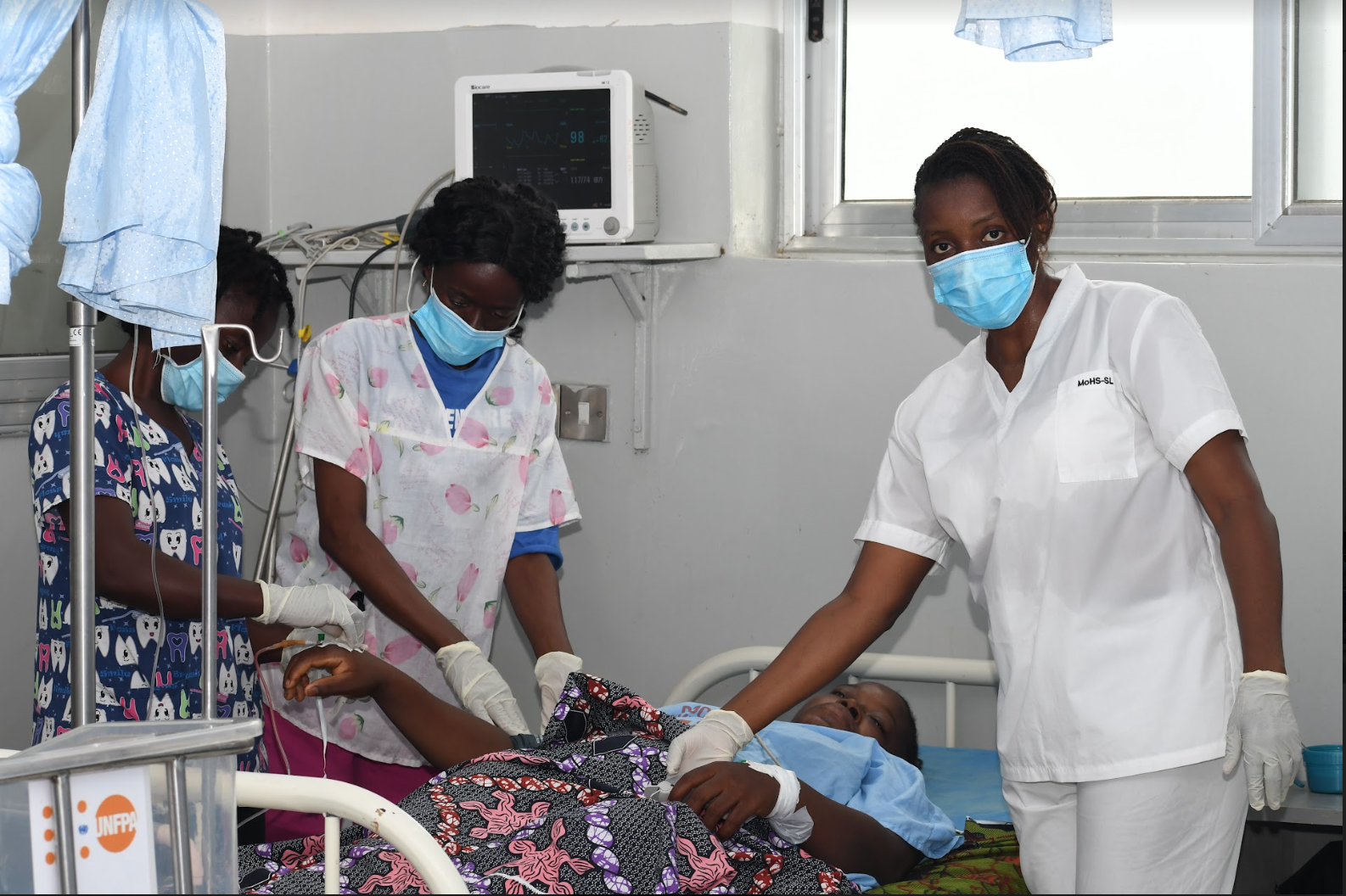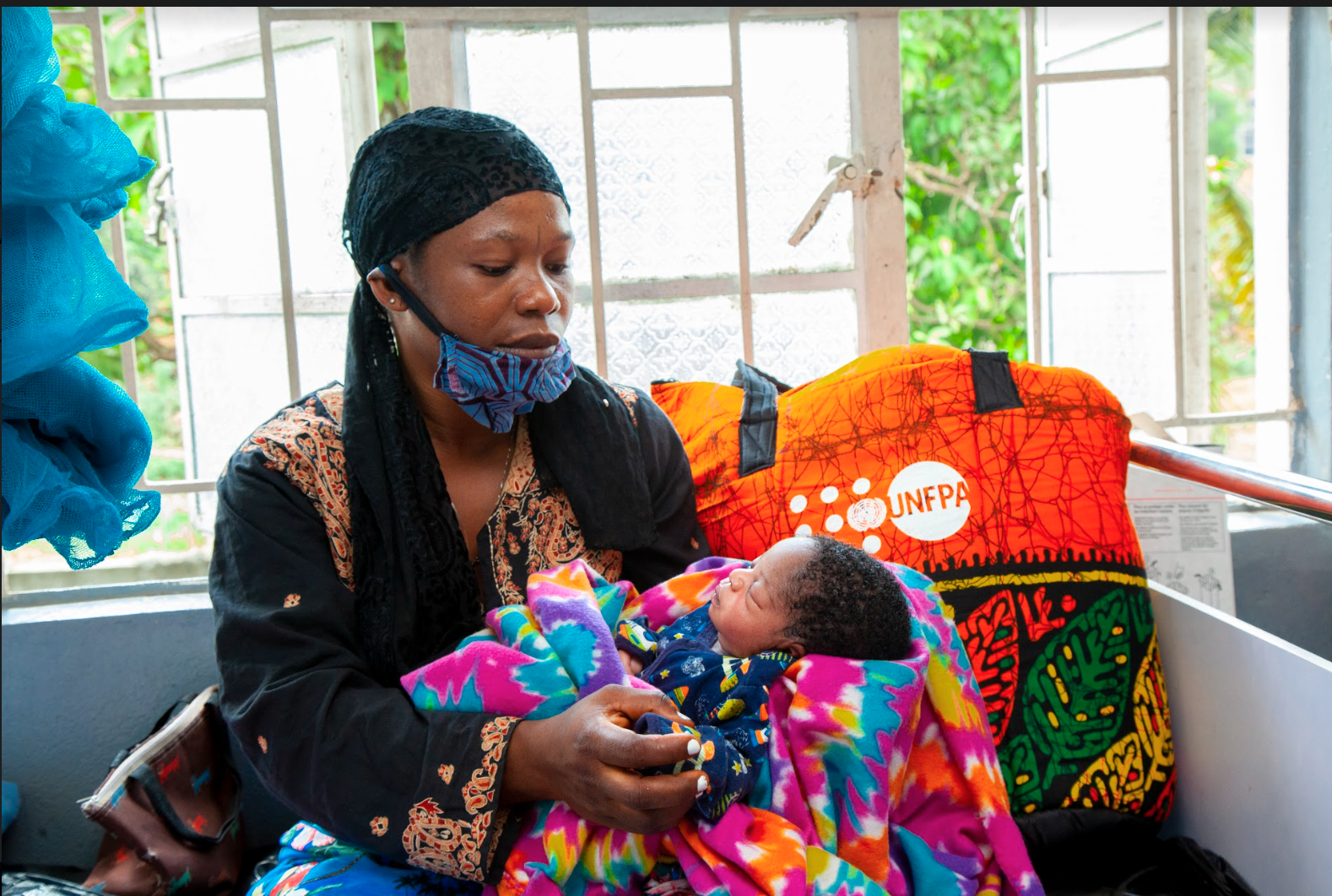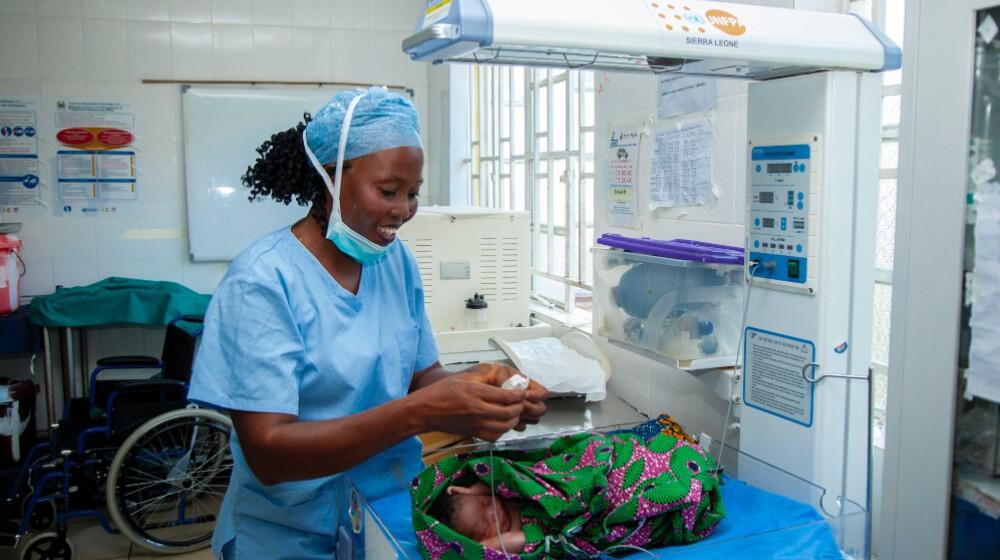The COVID-19 pandemic constitutes the most significant global public health crisis in a century, with daunting health and socioeconomic challenges. The United Nations Secretary-General António Guterres described the pandemic as the greatest test faced since the formation of the United Nations. As a result, governments worldwide overtook unprecedented measures to limit the spread of the virus, ramping up health systems and restricting the movement of millions.
Around the world, the pandemic severely disrupted access to life-saving Sexual and Reproductive Health (SRH) and other services. Ordinarily, lack of access to services may lead to higher maternal mortality and morbidity, unplanned pregnancies, unsafe abortions, and gender-based violence. In many countries, the pandemic also worsened existing inequalities for women and girls and deepened discrimination against other marginalized groups.
In the wake of the COVID-19 pandemic, UNFPA Sierra Leone developed an initiative to strengthen resilience for the continuity of Sexual and Reproductive Health services during emergencies. This initiative was in partnership with the Ministries of Health and Gender and with generous support from the Government of Japan.

With the regional office’s support, UNFPA Sierra Leone organized a webinar on the theme, “Building resilience for continuity of Sexual and Reproductive Health Services during Emergencies,” on Friday, 30 September 2022. During the webinar, panelists shared how Sierra Leone drew lessons from its experience during the Ebola Virus Disease to implement interventions that helped sustain SRH services during the COVID-19 pandemic to build resilience for the continuity of SRH services during emergencies.
Key lessons learned
- The leadership role played by the Government as the duty-bearer and the communication to, on the one hand, restore the confidence of the health workforce itself, but also, importantly, mobilizing and restoring the confidence of the community in the system;
- The importance of preparedness, building systems and programming so that service providers know what to do when an emergency occurs.
The initial response to the Ebola epidemic was shock, panic and confusion, disrupting health services, including SRH services. However, with support from international experts, development partners, and various local and international institutions, the country mounted a well-coordinated response through various pillars, including a pillar on essential health services. This led to capacity building of health care providers on the management of Ebola and effective community mobilization to help with the fight, which led to ending the Ebola epidemic.
When the COVID-19 pandemic began, the Ministry of Health and Sanitation applied the lessons learned from the fight against Ebola to mount a well-coordinated response, especially since most measures from the Ebola epidemic were applicable to COVID-19. This included emphasis on infection prevention practices, effective coordination, and community mobilization. This led to maintenance of essential health services during the COVID-19 pandemic.
Meanwhile, the Ministry of Gender drew lessons on improving the policy environment against GBV, which helped to mount a good response during the COVID-19 pandemic. At the time of the COVID-19 outbreak, the Ministry was already working on policies such as the male engagement policy, the Sexual and Gender-based Violence (SGBV) response strategy, the establishment of the “116” toll-free line for GBV survivors, and setting up one-stop centres for the management of GBV survivors. When COVID-19 pandemic emerged, the Ministry of Gender was in a better position to respond to GBV cases.

In addition, the Gender Ministry appointed a gender specialist to be part of the national COVID-19 response team to ensure that issues of gender were mainstreamed into the COVID-19 response. The Ministry continues to foster integration of GBV services into the overall SRH services and collaborates with the Ministry of Health and Sanitation.
The government’s leadership in the response was critical and should be replicated in future emergencies as this ensures the sustainability of interventions. This includes providing a conducive policy environment for emergency response, building the capacity of responders, and ensuring effective referral mechanisms. For example, during the COVID-19 pandemic, government leadership in Sierra Leone was evident, and all partners bought into the government plan, demonstrating that the interventions are likely to be sustainable. In addition, lessons from the Ebola epidemic led to implementation of interventions that ensured the maintenance of SRH services during the COVID-19 pandemic.
The design of the interventions went beyond the traditional emergency response, with the government-focused interventions on building long-term resilience. Therefore, the Government's leadership was the biggest game changer in the Sierra Leone response. Interventions had a long-term impact, and not just one-off activities. Therefore, development partners must always work closely with the Government in designing the preparedness and response plans and ensure that reality informs the interventions on the ground.
Also, UNFPA country offices should utilize the organization's vast experience in implementing the Minimum Initial Services Package (MISP), which ensures that all necessary components are in place to provide comprehensive SRH services during emergencies, including ensuring that we build alliances with all partners and the Government.
UNFPA Sierra Leone Representative Ms. Nadia Rasheed moderated the webinar. The panelists included: Ms. Satomi Ichino from the Ministry of Foreign Affairs Japan, Dr. Tom Sesay, Director of Reproductive and Child Health in the Ministry of Health and Sanitation; Mr. Ibrahim Kamara, Deputy Director in the Ministry of Gender; Mr. Borry Jatta, Team Leader for the WCARO Humanitarian and Fragile Context Unit; and Dr. Stephen Mupeta, SRH Health Specialist, UNFPA Sierra Leone.
After summarizing the key lessons learned, Ms. Argentina Matavel, UNFPA Regional Director for West and Central Africa, said that though these were lessons in Sierra Leone, they could be applied in any other country. She thanked the representatives of the Government of Sierra Leone, the Government of Japan, and development such as JICA, and all the panelists and participants for the engaging dialogue. Ms. Argentina Matavel noted the lessons on learning from past events to build resilience for the continuity of SRH services during emergencies.
Compiled by Stephen Mupeta, UNFPA Sierra Leone Country Office, and edited by Jacob Enoh Eben, UNFPA WCARO Regional Communications Advisor



